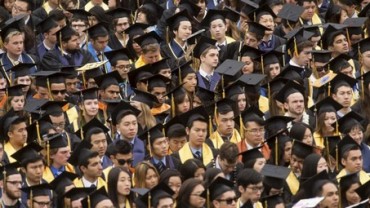Good Idea: Pentagon needs data security, strong encryption, U.S. defense chief
Defense Secretary Ash Carter on Tuesday underscored the U.S. military’s support for data security and strong encryption as he asked top U.S. technology sector entrepreneurs and innovators to play a larger role in national security.
Carter, on his third trip to Silicon Valley since taking office a year ago, urged greater cooperation between private industry and the public sector on data security and warned that failing to do would allow China, Russia and others who do not favor a free Internet to set new global standards.
The defense chief also waded into a controversy between the U.S. government and Apple Inc over the FBI’s request to circumvent security features on an iPhone used by one of the San Bernardino, California, shooters.
Carter did not address the case directly since it is under litigation, but he said the Pentagon as the largest user of encryption in the world viewed strong encryption as critical, and no one case should drive future policy considerations.
“We shouldn’t let the solutions to this larger issue of how to handle data security as a society be driven by any one particular case,” Carter told reporters after a speech to the Commonwealth Club of San Francisco. “It would be unreasonable.”
He said the issue of protecting data was complex, involving many different kinds of data, including data in motion, data at rest, and data crossing borders, and a solution required interaction between private industry and the public sector.
FBI Director James Comey told a congressional panel on Tuesday that a final court ruling forcing Apple to give the FBI data from the iPhone 5c in the San Bernadino case would be “potentially precedential” in other cases.
In his speech, Carter also warned against new legislation spurred solely by this case.
“It is easy to see wrong ways to do this. One would be a law hastily written in anger or grief. Another would be to have the rules be written by Russia or China,” he said.
After his speech Carter and his chief arms buyer met with five small companies at an event styled on the television series “Shark Tank,” where entrepreneurs pitch their ideas to investors.
Carter told reporters that he saw some interesting new technologies, including unmanned surface drones and ways to visualize big data, but he was particularly impressed with the “tremendous” people behind the ideas.
“I hope we steal some of them,” he said.
